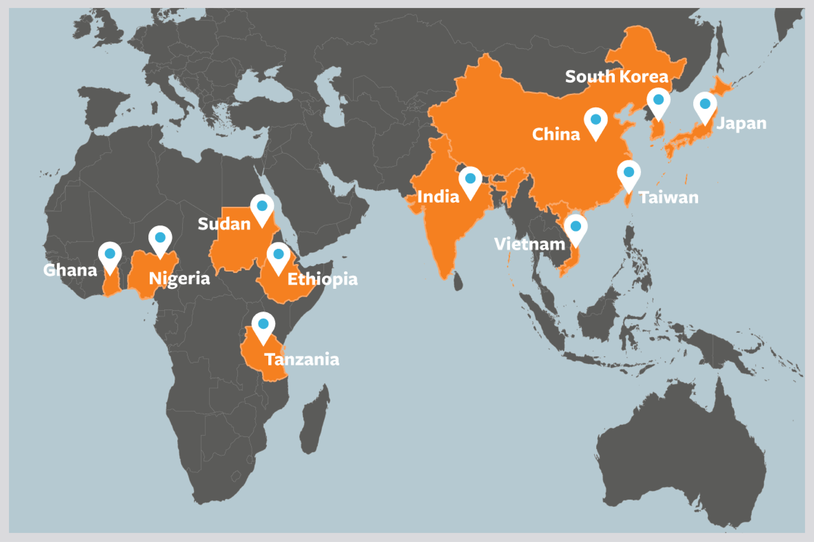
Genetic research has led to greater understanding of Parkinson’s causes and how scientists may stop it, but most of that research has been done in people of European descent. There is almost certainly more to learn.
Today The Michael J. Fox Foundation (MJFF) announces grants totaling nearly $5 million to three teams expanding genetic research in Africa, East Asia and India to better define Parkinson’s and point to new treatment options.
“While the field has made significant strides in genetic research, we know we have much more to learn about the changes in DNA that lead to Parkinson’s disease and impact its progression,” said MJFF Senior Vice President of Research Programs Brian Fiske, PhD. “This is an all-star initiative with world-class geneticists, clinic networks and study volunteers coming together to paint a global picture of Parkinson’s and work toward cures for everyone.”
Scientists identified the first genetic mutation associated with Parkinson’s in 1997 and have since found more than 80 genetic differences increasing risk for the disease to varying degrees. By studying the cellular effects of these changes, researchers better understand Parkinson’s pathology and are developing therapies against it. Drugs designed to target several proteins linked to Parkinson’s through genetic discoveries (alpha-synuclein, glucocerebrosidase and LRRK2) are already in clinical trials.
This global Parkinson’s genetics program — funded with support from longtime partner the Edmond J. Safra Foundation — seeks to build on that progress, broadening the research landscape with grants to the following projects:
- Africa
Collaborators will expand an existing registry to establish a network of 4,000 people with Parkinson’s and 4,000 control volunteers in Ethiopia, Ghana, Nigeria, Sudan and Tanzania. Investigators at the University of Lagos in Nigeria, UCL (University College London), and the U.S. National Institutes of Health (NIH) will coordinate sample sharing and genetic sequencing through an established partnership in the International Parkinson’s Disease Genetics Consortium, a worldwide collaboration devoted to gathering and analyzing Parkinson’s genetic data. - East Asia
Researchers in China, Japan, South Korea, Taiwan and Vietnam will leverage existing samples from 6,200 people with Parkinson’s and recruit 4,400 control volunteers for genetic sequencing. Also coordinated through the International Parkinson’s Disease Genetics Consortium, genetic sequencing will be directed by Hong Kong University of Science and Technology, UCL and the NIH. - India
An international team including partners at Sree Chitra Tirunal Institute for Medical Sciences and Technology, the Institute for Clinical Epidemiology and Applied Biometry at the University of Tübingen in Germany, and academic centers across India plan to gather and analyze data and samples from 10,000 people with Parkinson’s and 10,000 control volunteers. This partnership is built out of the existing Luxembourg-German-Indian Alliance on Neurodegenerative Diseases and Therapeutics consortium.
“Parkinson’s is a global issue, and we are grateful to The Michael J. Fox Foundation for fostering representation in research,” said Njideka Okubadejo, MBChB, Professor of Neurology at the University of Lagos. “We hope this partnership results in greater understanding of disease causes and contributors and leads to new treatments for people living in Africa and beyond.”
Watch a video on how genetic research teaches us about disease.
